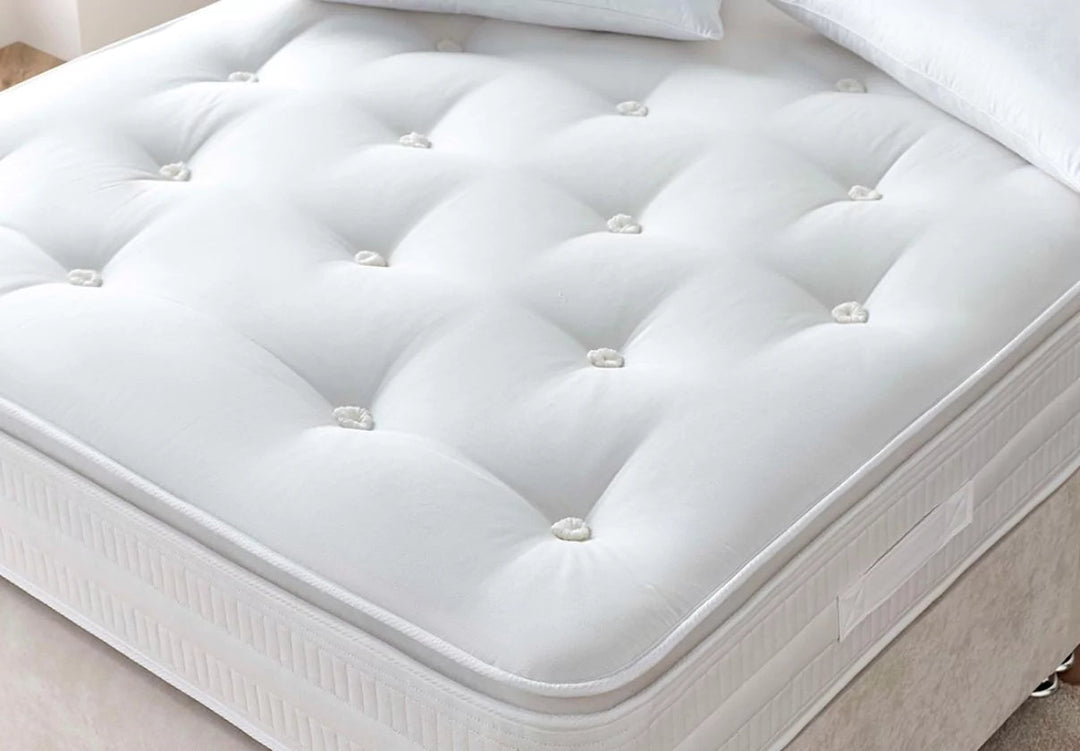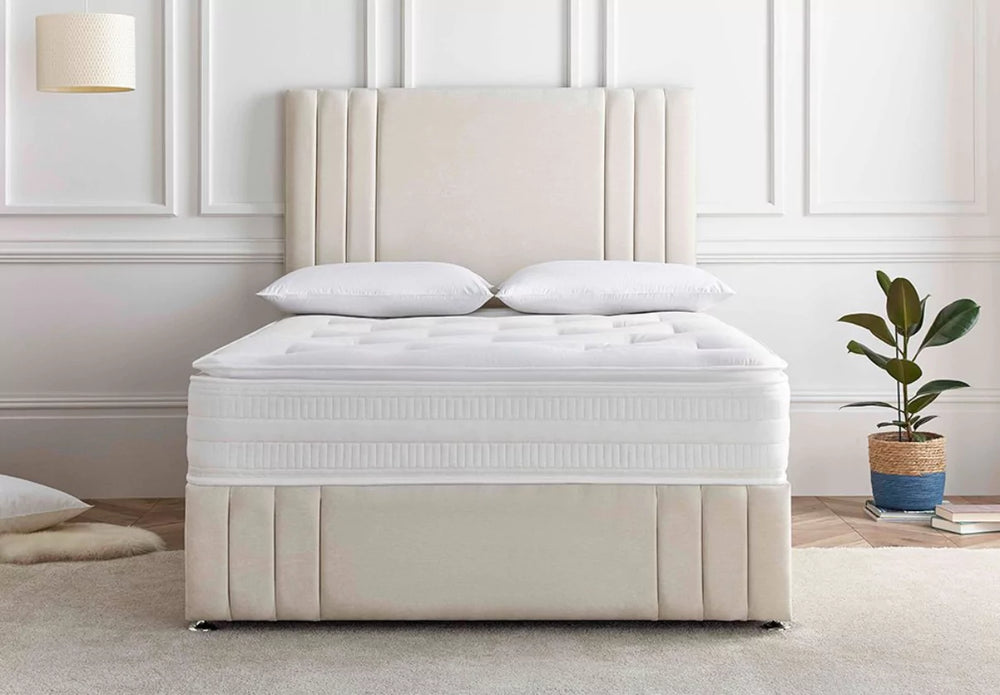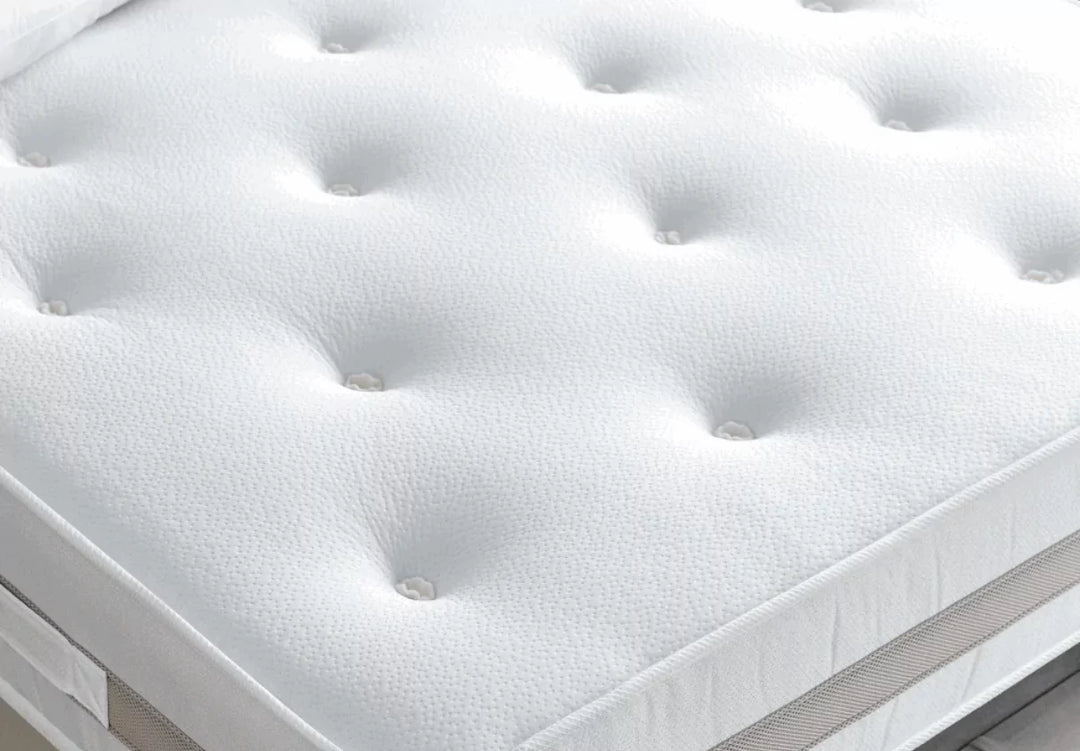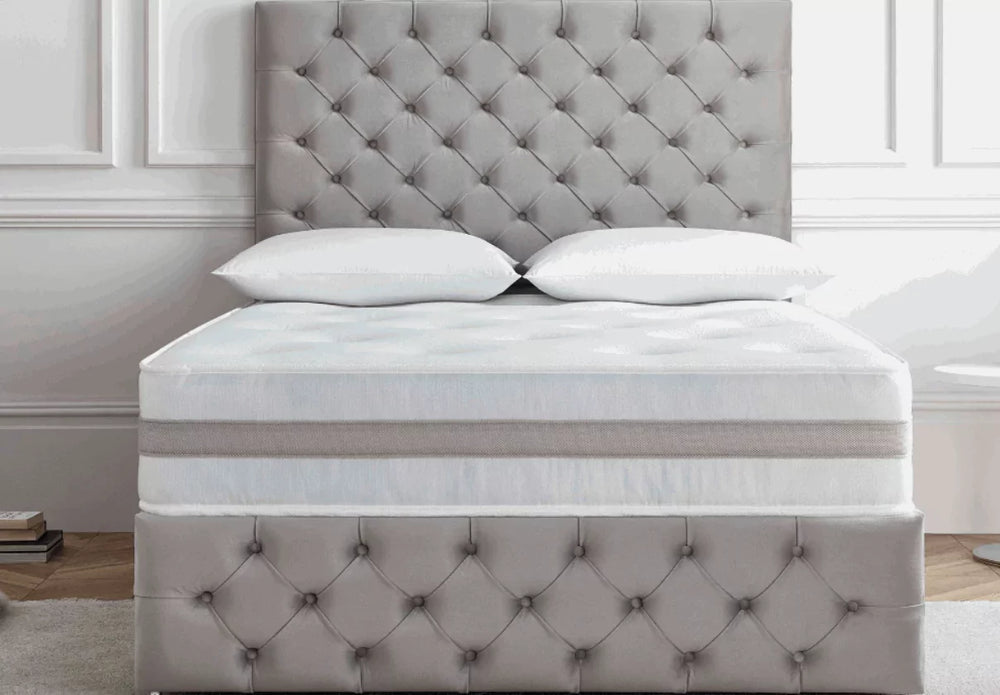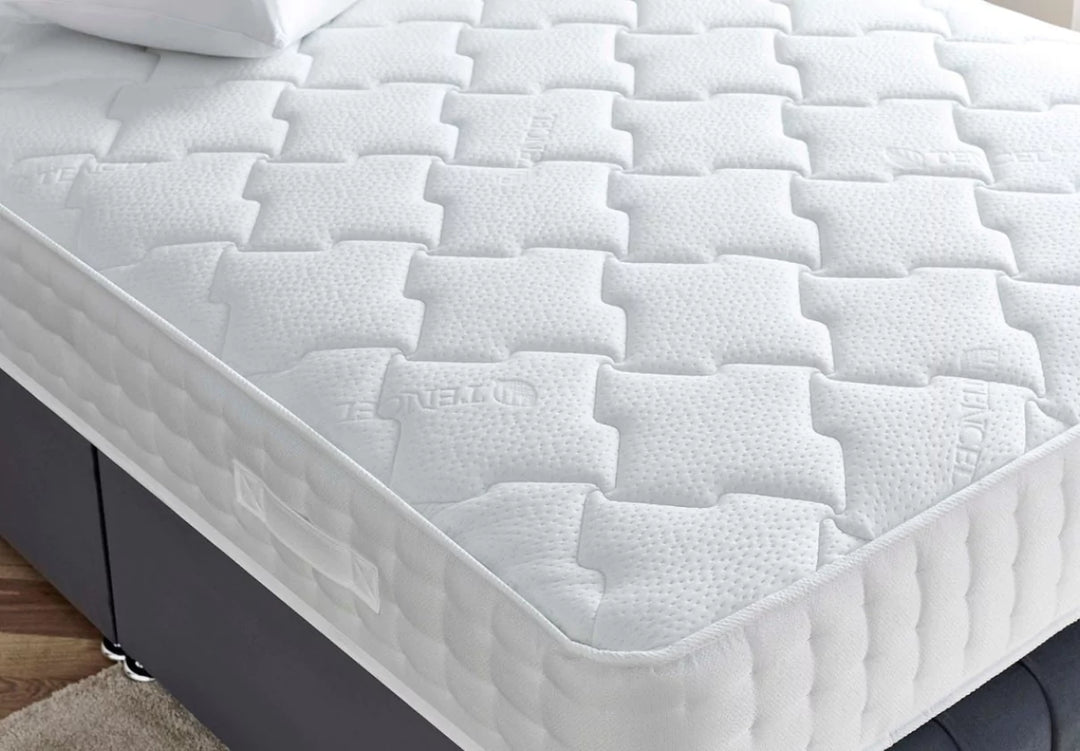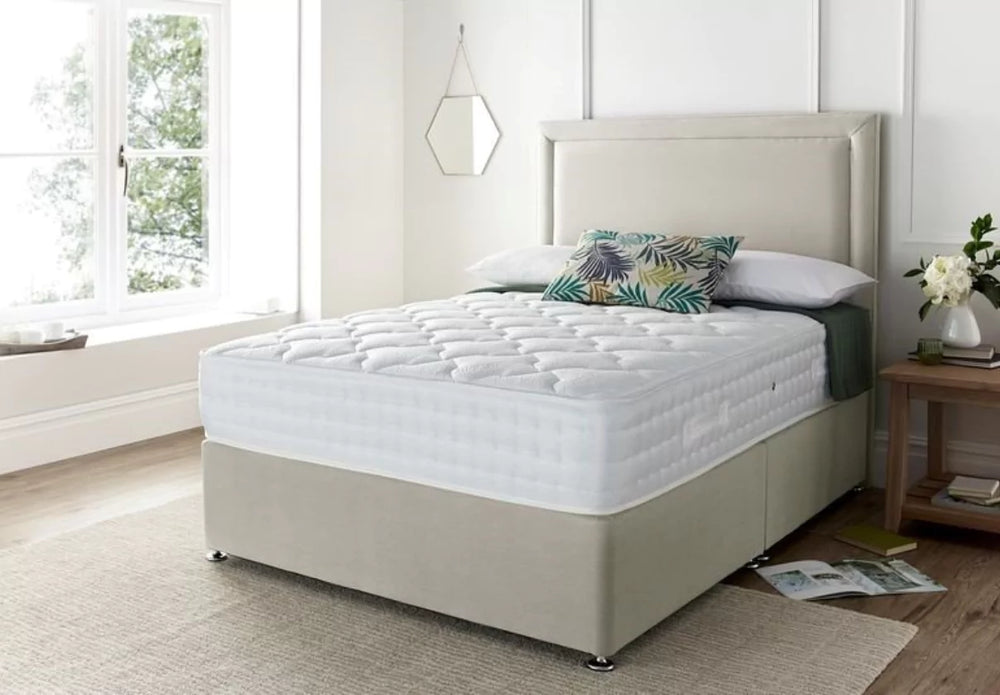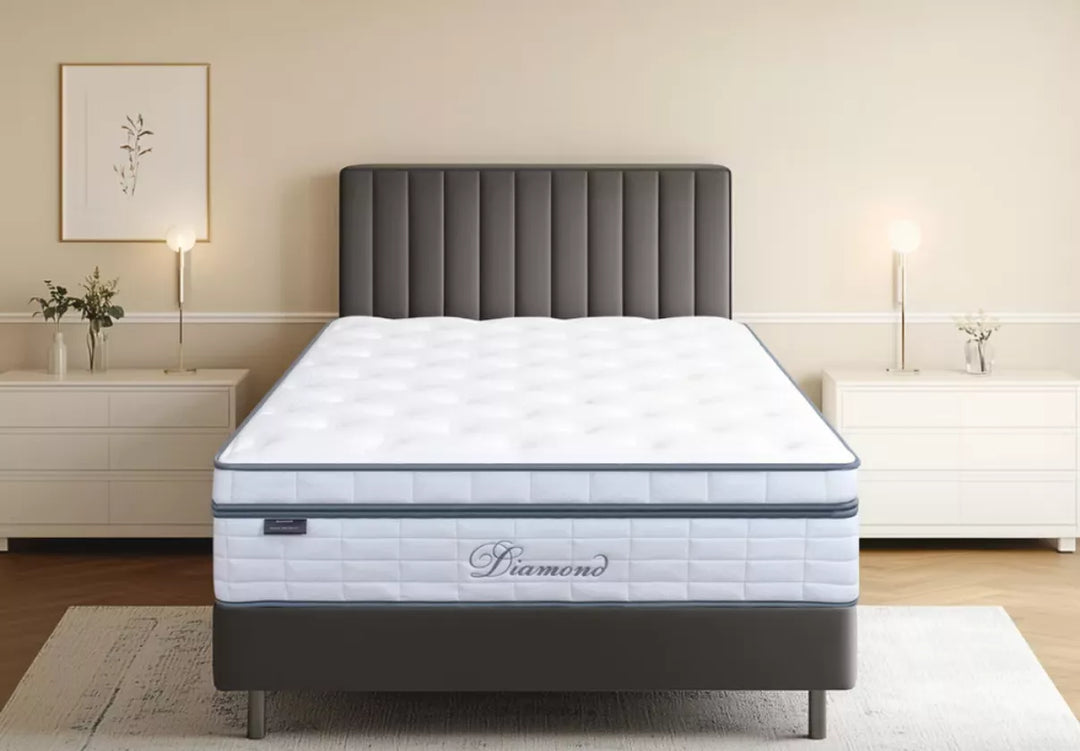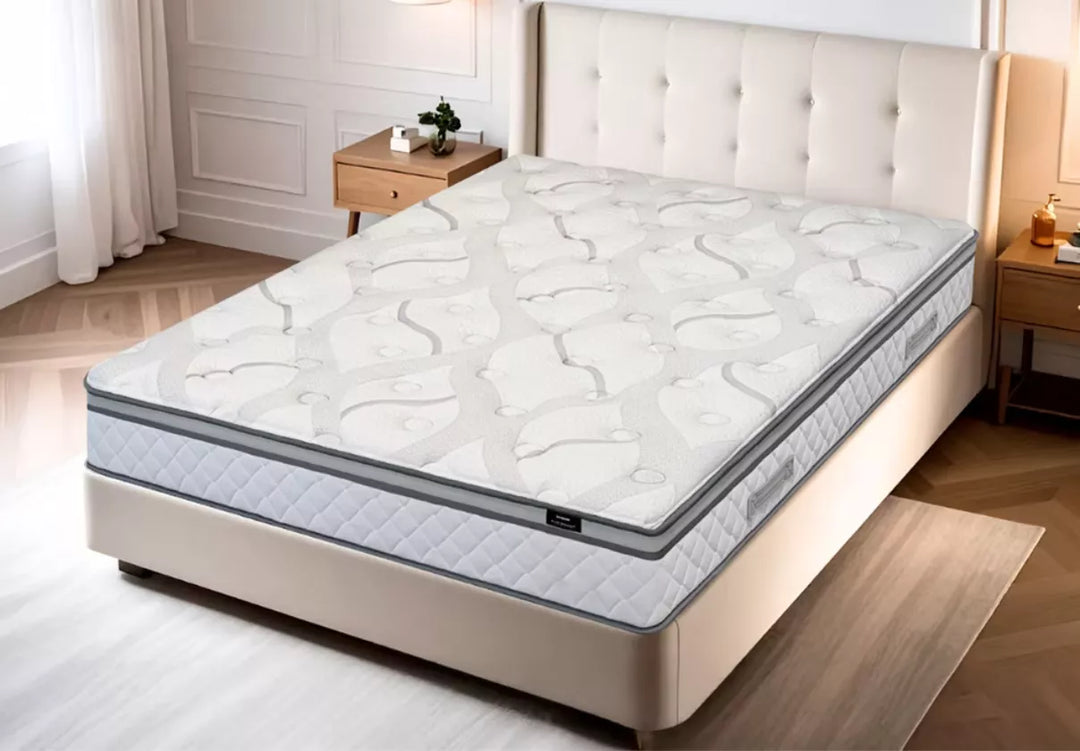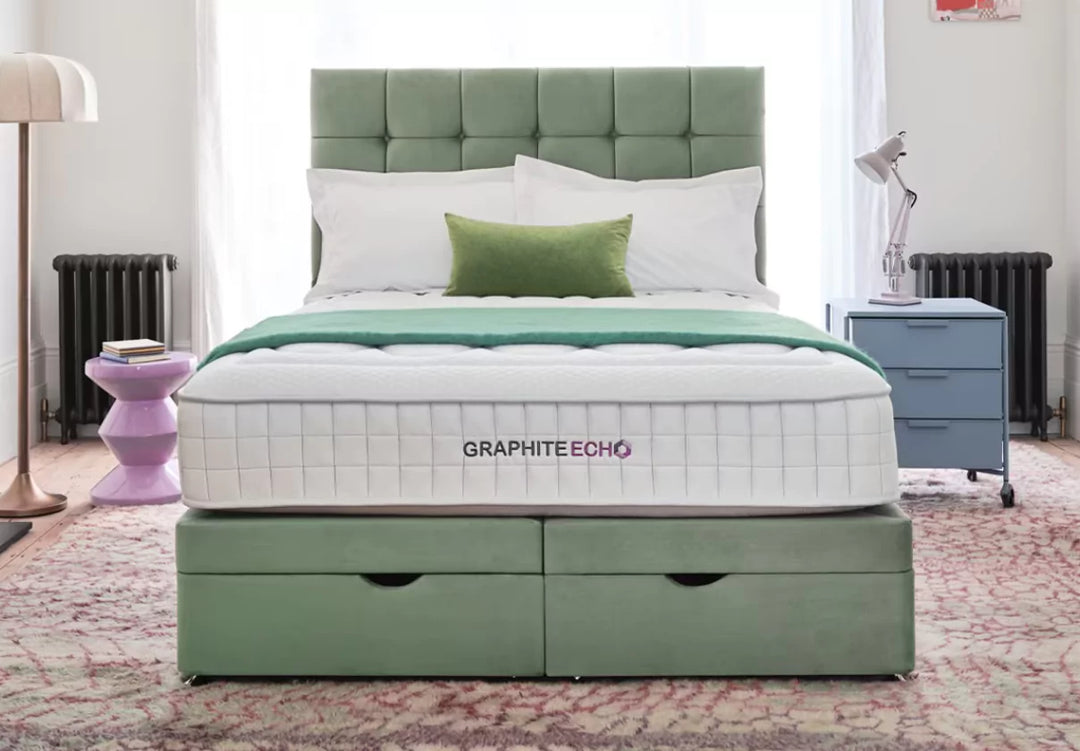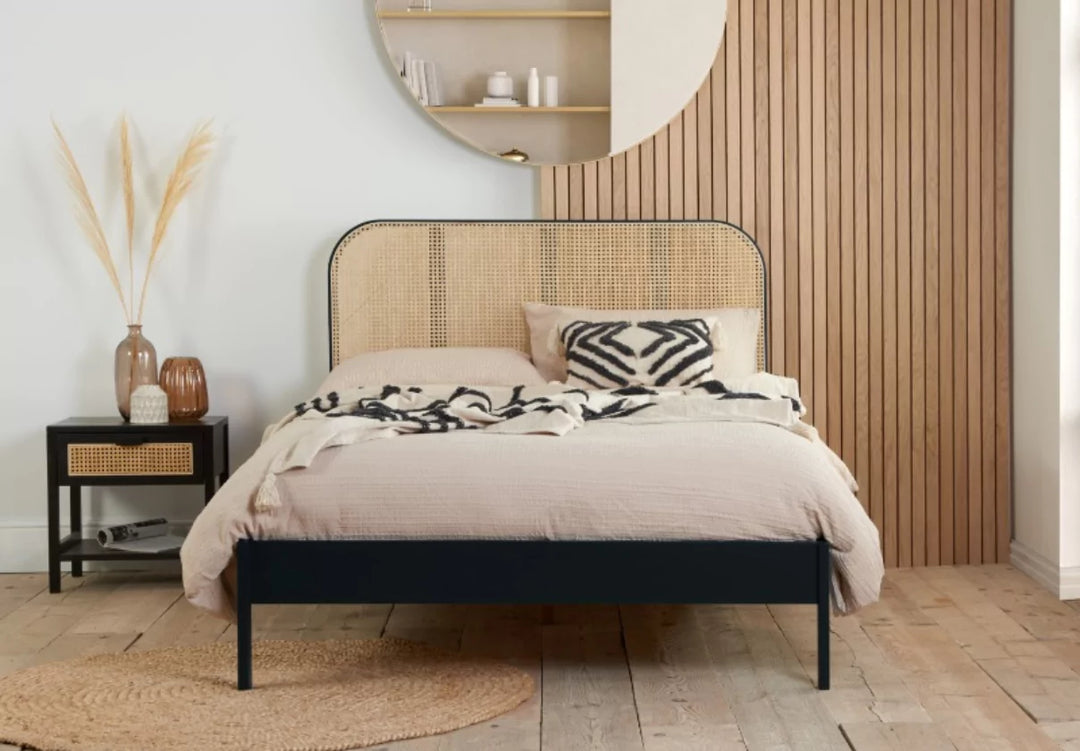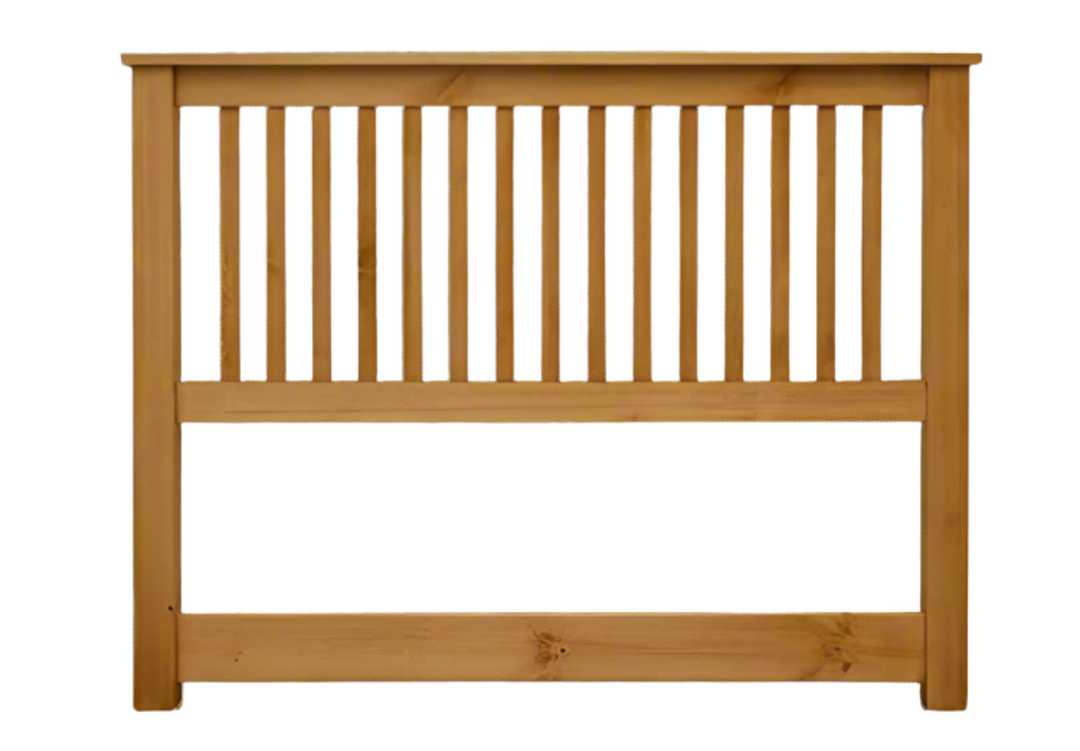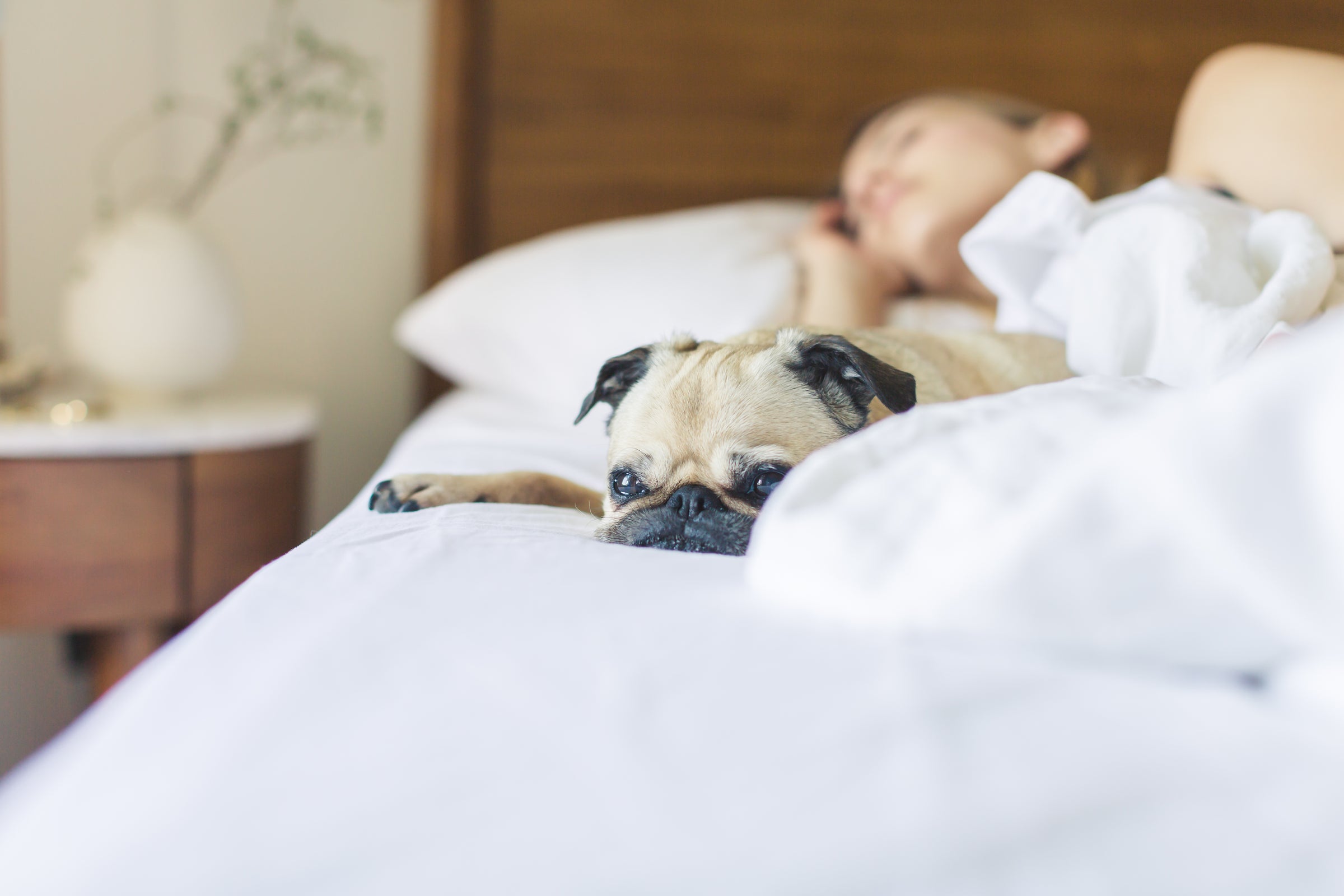
Hypoallergenic Mattress Buying Guide
Hypoallergenic mattresses, anti-allergy, allergy-free, non-allergenic—however you prefer to refer to these types of mattresses—hypoallergenic refers to the reduction of allergens and the prevention of dust mites. More and more of us are turning to this type of product as we are suffering from allergies more than ever before. Combating these allergies is high on the list of priorities at Mattresses 365, and we have a wide range of products that will do just that.
What is a Hypoallergenic Mattress?
A hypoallergenic mattress is a mattress designed to prevent allergic reactions by creating a barrier for dust mites, skin cells, and oils, preventing them from entering the mattress.
What are the benefits of a Hypoallergenic Mattress?
The benefits of a hypoallergenic mattress are simple: reducing allergic reactions, fighting against bacterial growth, and promoting a healthy sleep environment for asthmatics, allergy sufferers, and more.
Are hypoallergenic mattresses better for allergy sufferers?
Yes, hypoallergenic mattresses are designed to reduce allergens like dust mites, mold, and pet dander, making them a better choice for those with allergies or asthma.
How do hypoallergenic mattresses work?
Hypoallergenic mattresses work by using materials and coatings that prevent allergens, such as dust mites, from entering the mattress. This creates a cleaner, healthier sleep environment for allergy sufferers.
Do hypoallergenic mattresses prevent dust mites?
Yes, hypoallergenic mattresses are specifically designed to resist dust mites, which are one of the most common causes of allergies and asthma. They use tightly woven fabrics or special protective barriers to block these pests.
Can a hypoallergenic mattress help with asthma?
Hypoallergenic mattresses can help reduce asthma triggers by minimising exposure to dust mites and other allergens. This can improve sleep quality and reduce asthma symptoms for sensitive individuals.
Are hypoallergenic mattresses safe for children?
Yes, hypoallergenic mattresses are safe for children, especially those who suffer from allergies or asthma. They help create a cleaner sleep environment by minimising allergens that can trigger allergic reactions.
Do hypoallergenic mattresses require special cleaning?
Hypoallergenic mattresses generally require the same maintenance as regular mattresses, but it's important to follow specific cleaning instructions, such as using allergen-reducing mattress protectors and regularly washing bedding to maintain their effectiveness.
Are hypoallergenic mattresses more expensive?
Hypoallergenic mattresses can be slightly more expensive than standard mattresses, due to the use of specialised materials and construction that help reduce allergens and improve sleep quality. However, the benefits they offer for allergy sufferers often outweigh the additional cost.
What materials are used in hypoallergenic mattresses?
Hypoallergenic mattresses often feature materials like memory foam, latex, and organic cotton, which are resistant to allergens such as dust mites, mold, and bacteria. These materials are carefully selected to create a clean, allergy-friendly sleeping environment.
Can hypoallergenic mattresses help with eczema?
Yes, hypoallergenic mattresses can help reduce irritation for those with eczema by minimizing exposure to allergens that can trigger flare-ups. They create a cleaner sleep surface, which can improve overall comfort for those with sensitive skin.
How long do hypoallergenic mattresses last?
The lifespan of a hypoallergenic mattress is similar to other types, typically between 7 to 10 years, depending on the quality of the materials and care. Regular maintenance, such as using mattress protectors and cleaning bedding, can extend its longevity.
Can a hypoallergenic mattress reduce snoring?
While a hypoallergenic mattress itself doesn’t directly reduce snoring, it can improve sleep quality by minimizing allergens that may cause congestion or breathing difficulties. This may indirectly help reduce snoring, especially for allergy sufferers or those with respiratory conditions.
Are hypoallergenic mattresses resistant to mold?
Yes, hypoallergenic mattresses are often resistant to mold growth due to the materials used, such as moisture-wicking fabrics and hypoallergenic foams. This helps maintain a clean and healthy sleeping environment, especially in humid conditions.
Can I use a mattress protector with a hypoallergenic mattress?
Yes, using a mattress protector with a hypoallergenic mattress is a great way to enhance its allergen-resistant properties. It provides an additional layer of protection against dust mites, dirt, and allergens, helping to keep the mattress clean and safe for allergy sufferers. We also offer a wide selection of hypoallergenic bedding options to complement your mattress. Explore our range here.


